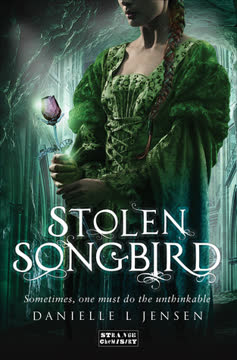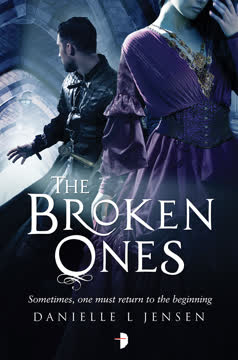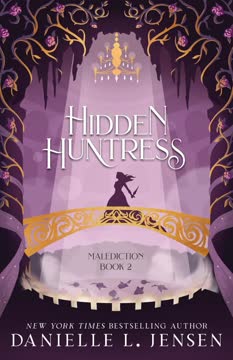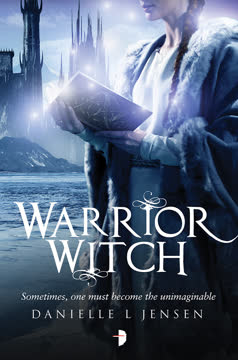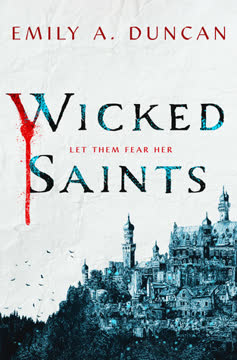Plot Summary
Songbird's Last Performance
Cécile de Troyes, a gifted singer in rural Goshawk's Hollow, dreams of joining her famous mother on the grand stages of Trianon. Her final performance in the village is bittersweet, shadowed by her mother's absence and the weight of expectation. As she prepares to leave her simple life behind, Cécile's world is upended when she is abducted by Luc, a trusted family friend. Her journey home is violently interrupted, and she is dragged toward the legendary, cursed Forsaken Mountain. The chapter sets the tone of longing, ambition, and the cruel twist of fate, as Cécile's dreams are stolen in a single afternoon, and she is thrust into a world of darkness and myth.
Abduction Beneath the Mountain
Luc's betrayal is swift and brutal, as he sells Cécile to mysterious buyers for gold. Forced to swim through a hidden underwater passage, she emerges in a labyrinthine world beneath the mountain. The reality of her situation—sold to trolls, creatures of legend—crushes her hope. The journey through the tunnels is harrowing, filled with physical and psychological terror, as Cécile realizes she is utterly alone and powerless. Luc's greed and callousness are a stark contrast to Cécile's resilience, and her first taste of the trolls' world is one of fear, confusion, and the loss of agency. The darkness is both literal and metaphorical, as Cécile's old life is left behind.
Labyrinth of Shadows
Cécile and Luc are hunted by a monstrous sluag, a creature that stalks the labyrinth. Their desperate flight is a test of endurance and will, culminating in a narrow escape into the heart of Trollus. Here, Cécile meets Marc, a troll noble whose appearance is both beautiful and grotesque. The encounter is jarring—trolls are not the mindless beasts of legend, but complex, magical beings. Marc's ambiguous kindness and Luc's final betrayal leave Cécile reeling. The chapter is thick with dread and the unknown, as Cécile is delivered to the rulers of Trollus, her fate to be decided by creatures who see her as both a tool and a threat.
Trollus Unveiled
Trollus is a city of impossible beauty, hidden beneath a mountain, its people cursed and desperate. Cécile is paraded before the troll king and queen, judged for her worth. The trolls are a society of power, deformity, and rigid hierarchy, their magic both wondrous and terrifying. Cécile learns she is to be bonded to Prince Tristan, a union prophesied to break the curse that imprisons the trolls. The revelation is devastating—her body and future are to be used as a key, her consent irrelevant. The emotional arc is one of shock, humiliation, and the first stirrings of defiance, as Cécile vows to survive and find a way home.
The Bargain of Gold
Cécile's marriage to Tristan is a transaction—her weight in gold, her freedom for the trolls' hope. The bonding ceremony is a spectacle, binding their minds and emotions together. The magic is invasive, linking Cécile and Tristan in ways neither desires. The city's hope is palpable, but the curse remains unbroken. Cécile's new life is one of surveillance, manipulation, and the constant threat of violence. Yet, in the forced intimacy with Tristan, sparks of understanding and reluctant alliance begin to form. The emotional core is a mix of despair, anger, and the first glimmers of connection between two prisoners of fate.
Bonded by Moonlight
Cécile is thrust into the role of princess, her every move watched and judged. She navigates the treacherous politics of Trollus, befriending half-blood servants and learning the city's secrets. Her bond with Tristan is fraught—he is bitter, clever, and hiding his own agenda. Together, they face the city's disappointment as the curse remains, and riots threaten to tear Trollus apart. Cécile's resilience grows, as does her empathy for the oppressed half-bloods. The chapter is a turning point, as Cécile shifts from victim to agent, determined to survive, resist, and perhaps even change the world she's been forced into.
The Curse Remains
The failure of the bonding to break the curse sends shockwaves through Trollus. The trolls' hope turns to anger, and Cécile becomes a scapegoat. Her bond with Tristan deepens, as they are forced to rely on each other for survival. The emotional connection is complicated by mutual distrust, cultural chasms, and the ever-present threat of violence. Cécile's empathy for the half-bloods grows, and she becomes entangled in their struggle for freedom. The city teeters on the edge of chaos, and Cécile's own sense of self is tested as she is pulled between her longing for home and her growing sense of responsibility.
Prisoner and Prince
Cécile and Tristan's relationship evolves from antagonism to reluctant partnership. Both are prisoners—she of the trolls, he of his father and the curse. They navigate the city's politics, uncovering layers of deception and hidden agendas. Cécile learns of the half-bloods' plight and the revolution brewing beneath the surface. Tristan's secret sympathies are revealed, and together they plot to change Trollus from within. The emotional arc is one of growing trust, vulnerability, and the first stirrings of love, set against a backdrop of danger and intrigue. The bond between them becomes both a weapon and a lifeline.
The City of Glass
Cécile explores Trollus, discovering its wonders and horrors. The city is a paradox—stunning glass gardens, magical artistry, and vibrant culture, shadowed by slavery, prejudice, and violence. Cécile's friendships with half-bloods deepen, and she becomes a symbol of hope and change. Her own magic begins to awaken, hinting at a power that could alter the fate of Trollus. The emotional journey is one of awe, sorrow, and determination, as Cécile finds purpose in the fight for justice. The city's beauty is both a comfort and a cage, and Cécile's longing for freedom is matched by her desire to heal the wounds of Trollus.
Secrets and Alliances
Cécile becomes enmeshed in the half-bloods' revolution, risking her life to help those oppressed by troll society. She uncovers the existence of Anushka's grimoire, a book of witch magic that may hold the key to breaking the curse. Her own powers as a witch begin to manifest, and she must decide how to use them. Tristan's plans to overthrow his father and free the half-bloods are revealed, and the stakes rise as enemies close in. The emotional core is one of courage, sacrifice, and the forging of true alliances, as Cécile and Tristan become partners in both love and rebellion.
The Witch's Grimoire
Cécile's discovery of Anushka's grimoire is a turning point. The book's secrets are dangerous—blood magic, curses, and the true history of the trolls' imprisonment. Cécile's own heritage as a witch is revealed, and she must grapple with the responsibility and peril of her power. The grimoire becomes both a weapon and a temptation, as Cécile faces the choice of using dark magic to save those she loves. The emotional arc is one of fear, temptation, and resolve, as Cécile embraces her identity and the risks it entails. The lines between good and evil blur, and the cost of freedom becomes ever more personal.
Earthshakes and Upheaval
A catastrophic earthshake rocks Trollus, shattering the city and killing many. The disaster exposes the fragility of the trolls' magical prison and the urgency of change. Cécile is injured, and the city descends into chaos. The revolution erupts, and alliances are tested as the king's cruelty is laid bare. Cécile's own mortality is brought into sharp focus, and she must rely on her friends, her magic, and her love for Tristan to survive. The emotional journey is one of grief, resilience, and the desperate hope that something better can be built from the ruins.
The Price of Freedom
The final battle for Trollus is waged not with swords, but with sacrifice and cunning. Cécile and Tristan risk everything to free the half-bloods and overthrow the king. Betrayals and losses mount, and the cost of freedom is paid in blood and heartbreak. Cécile's own life hangs in the balance, and Tristan must choose between love and duty. The emotional climax is raw and devastating, as the characters are forced to confront the limits of their power and the depth of their love. The revolution succeeds, but at a terrible price, and the future remains uncertain.
The Choice of Love
Cécile is mortally wounded and smuggled out of Trollus by Tristan, who sacrifices his own freedom to save her. Their parting is agonizing, as both know they may never see each other again. Cécile's return to the surface is bittersweet—she is healed, but her heart remains in the darkness below. The emotional arc is one of loss, longing, and the enduring power of love. Cécile's journey has transformed her, and she is no longer the girl who dreamed only of the stage. She is a survivor, a witch, and a fighter, determined to reclaim what was stolen from her.
Betrayal and Sacrifice
Back in the human world, Cécile is torn between the safety of home and the call of destiny. She mourns Tristan and the life they might have had, but refuses to give in to despair. The scars of her ordeal are both physical and emotional, and she must navigate a world that cannot understand what she has endured. Yet, Cécile's resolve is unbroken—she will not abandon those she left behind, nor the love that changed her. The emotional journey is one of grief, healing, and the first steps toward a new purpose.
The Witch Must Die
Cécile's story ends with a vow—to find Anushka, the witch who cursed Trollus, and end the suffering of those she loves. The journey is far from over, and the stakes are higher than ever. Cécile embraces her identity as a witch and a warrior, determined to use her power for justice. The emotional arc is one of hope, determination, and the promise of a new beginning. The darkness of Trollus has changed her, but it has not broken her. The fight for freedom, love, and redemption continues.
Characters
Cécile de Troyes
Cécile is a young woman of extraordinary talent and will, torn from her simple life and thrust into a world of magic, cruelty, and intrigue. Her journey is one of transformation—from a dreamer longing for the stage to a survivor, witch, and revolutionary. Cécile's resilience is her greatest strength; she endures betrayal, captivity, and heartbreak without losing her empathy or hope. Her bond with Tristan is both a curse and a lifeline, forcing her to confront her own prejudices and desires. Cécile's relationships—with her family, the half-bloods, and the trolls—are complex, marked by loyalty, guilt, and the longing for belonging. Her awakening as a witch is both a source of power and danger, and her ultimate vow to destroy Anushka is a testament to her courage and sense of justice. Cécile's arc is one of self-discovery, agency, and the refusal to be defined by fate.
Prince Tristan de Montigny
Tristan is the heir to Trollus, a prince burdened by the expectations of his father and the weight of a centuries-old curse. Outwardly cold, sarcastic, and cunning, Tristan hides a deep well of compassion and a burning desire for justice. His alliance with the half-bloods and secret plans to overthrow his father reveal a mind both strategic and idealistic. The bond with Cécile is transformative, forcing him to confront his own vulnerability and capacity for love. Tristan's struggle is one of identity—torn between duty, rebellion, and the fear of becoming the monster his father wants him to be. His willingness to sacrifice everything for Cécile is both his greatest strength and his deepest wound. Tristan's arc is a study in the cost of power, the pain of love, and the hope for redemption.
Marc de Biron
Marc is a troll noble marked by physical deformity and deep emotional scars. His friendship with Tristan is unwavering, and his own tragic love story with Pénélope haunts his every action. Marc is both a guide and a warning to Cécile, embodying the pain of loss and the dangers of love in a world where magic binds and destroys. His loyalty is fierce, but his grief is a constant shadow. Marc's role as confidant, protector, and revolutionary is complicated by his own suffering, and his arc is one of endurance, sacrifice, and the search for meaning in a cursed world.
Anaïs d'Angoulême
Anaïs is a beautiful, powerful troll noble, raised to be ruthless and strategic. Her unrequited love for Tristan is a source of both strength and bitterness, driving her to acts of both cruelty and sacrifice. Anaïs's relationship with Cécile is fraught—rivalry, jealousy, and reluctant respect intertwine as they are forced to work together. Her ultimate sacrifice in the battle against the king reveals a depth of loyalty and courage that transcends her flaws. Anaïs is a study in the costs of ambition, the pain of rejection, and the possibility of redemption.
King Thibault de Montigny
Thibault is the tyrannical ruler of Trollus, obsessed with breaking the curse and maintaining his power. He is a master manipulator, using cruelty, fear, and cunning to control his subjects and his own family. Thibault's relationship with Tristan is toxic, defined by tests, punishments, and the constant threat of violence. He sees Cécile as a tool, her humanity both a weakness and a weapon. Thibault's arc is one of hubris, the refusal to change, and the ultimate downfall that comes from underestimating love and hope.
Luc
Luc is the childhood friend who betrays Cécile for gold, setting the entire story in motion. His actions are driven by selfishness and desperation, and his fate is a cautionary tale of the dangers of greed. Luc's betrayal is a wound that shapes Cécile's journey, and his death in the labyrinth is both justice and tragedy. He is a symbol of the human capacity for cruelty and the consequences of moral failure.
Élise and Zoé
Élise and Zoé are half-blood servants in Trollus, caught between worlds and marked by both human vulnerability and troll magic. Their friendship with Cécile is a lifeline, offering comfort, guidance, and solidarity. The sisters' own history of loss and survival mirrors Cécile's journey, and their loyalty is tested by the dangers of revolution and the threat of betrayal. They are symbols of resilience, hope, and the possibility of change in a world built on oppression.
Tips
Tips is a miner and leader among the half-bloods, embodying the struggle for dignity and freedom in Trollus. His friendship with Cécile is hard-won, built on mutual respect and shared risk. Tips's injury and near-death experience are a turning point, forcing Cécile to embrace her magic and the responsibilities it brings. He is a symbol of the cost of revolution, the value of every life, and the power of solidarity.
Angoulême
Angoulême is the head of a powerful troll house, a master of intrigue and a champion of blood purity. His machinations threaten both Cécile and Tristan, and his manipulation of his own daughter, Anaïs, is a source of pain and conflict. Angoulême's arc is one of ambition, cruelty, and the refusal to accept change. He is a symbol of the old order, the dangers of fanaticism, and the obstacles facing those who seek justice.
Anushka (The Witch)
Anushka is the legendary witch whose curse trapped Trollus beneath the mountain. Though absent, her presence looms over every event, her grimoire a source of both hope and danger. Anushka's motives are shrouded in mystery, and her legacy is one of suffering, power, and the possibility of redemption. She is the ultimate antagonist, the key to both the trolls' prison and their potential freedom.
Plot Devices
The Bonding Ritual
The bonding ritual between Cécile and Tristan is the central plot device, binding their minds and emotions in a way that forces intimacy, conflict, and growth. It is both a curse and a blessing, driving the plot forward by making their fates inseparable. The bond is a source of tension—every emotion, every pain, every secret is shared, making deception difficult and vulnerability inevitable. The ritual is also the trolls' last hope for freedom, and its failure is a catalyst for revolution and change. The device allows for deep psychological exploration, as both characters are forced to confront their own desires, fears, and prejudices.
The Curse of Trollus
The curse that traps the trolls beneath the mountain is both a literal and symbolic prison. It shapes every aspect of troll society—politics, relationships, and the hierarchy of power. The curse is the driving force behind the king's cruelty, the half-bloods' oppression, and the revolution brewing beneath the surface. Its origins in witch magic and the mystery of Anushka's motives provide narrative momentum and a sense of looming destiny. The curse is also a metaphor for cycles of violence, prejudice, and the difficulty of breaking free from the past.
The Grimoire and Witch Magic
Anushka's grimoire is a classic plot device—a book of forbidden magic that offers both hope and danger. Its secrets are the key to breaking the curse, but also a source of temptation and risk. The grimoire's presence allows for the exploration of themes of power, responsibility, and the cost of change. Cécile's awakening as a witch is both a personal and political transformation, giving her agency in a world that seeks to control her. The grimoire is also a source of foreshadowing, hinting at future dangers and the unresolved threat of Anushka herself.
Revolution and Social Upheaval
The brewing revolution among the half-bloods is a major plot device, providing both external conflict and internal growth for the characters. The alliances formed between Cécile, Tristan, and the oppressed are fraught with danger, betrayal, and sacrifice. The revolution is not a simple battle of good versus evil, but a complex struggle with real costs and moral ambiguity. The device allows for the exploration of themes of justice, freedom, and the price of change.
Foreshadowing and Prophecy
Prophecy and foreshadowing are woven throughout the narrative, creating a sense of inevitability and tension. The foretelling of Cécile and Tristan's union, the hints of Anushka's true motives, and the recurring motifs of song, glass, and darkness all serve to build suspense and deepen the emotional impact. The use of prophecy also raises questions about fate and free will, as the characters struggle to shape their own destinies in the face of seemingly unbreakable cycles.
Analysis
Stolen Songbird is a masterful blend of fantasy, romance, and social commentary, using the framework of a fairy tale to explore themes of agency, oppression, and the transformative power of love. At its heart, the novel is about the struggle to find hope and meaning in a world built on cruelty and injustice. Cécile's journey from victim to agent is a powerful meditation on resilience, empathy, and the refusal to be defined by fate. The bond between Cécile and Tristan is both a literal and metaphorical union, forcing them to confront their own prejudices and the possibility of change. The novel's depiction of revolution is nuanced, acknowledging the costs and moral ambiguities of social upheaval. The use of magic and prophecy raises questions about power, responsibility, and the dangers of both tradition and progress. In a modern context, Stolen Songbird resonates as a story about the fight for justice, the importance of solidarity, and the enduring hope that even in the darkest places, love and courage can light the way. The novel's ultimate message is one of agency—the power to choose, to resist, and to remake the world, even when the odds seem insurmountable.
Last updated:
Review Summary
Stolen Songbird receives mostly positive reviews for its unique take on trolls, complex characters, and slow-burn romance. Readers praise the world-building, engaging plot, and lack of common YA tropes. Some criticize underdeveloped aspects and predictable elements. The main characters, Cécile and Tristan, are generally well-liked for their growth and chemistry. While a few found the story cliché or frustrating, many readers eagerly anticipate the sequels. Overall, the book is considered an entertaining and refreshing addition to the YA fantasy genre.
